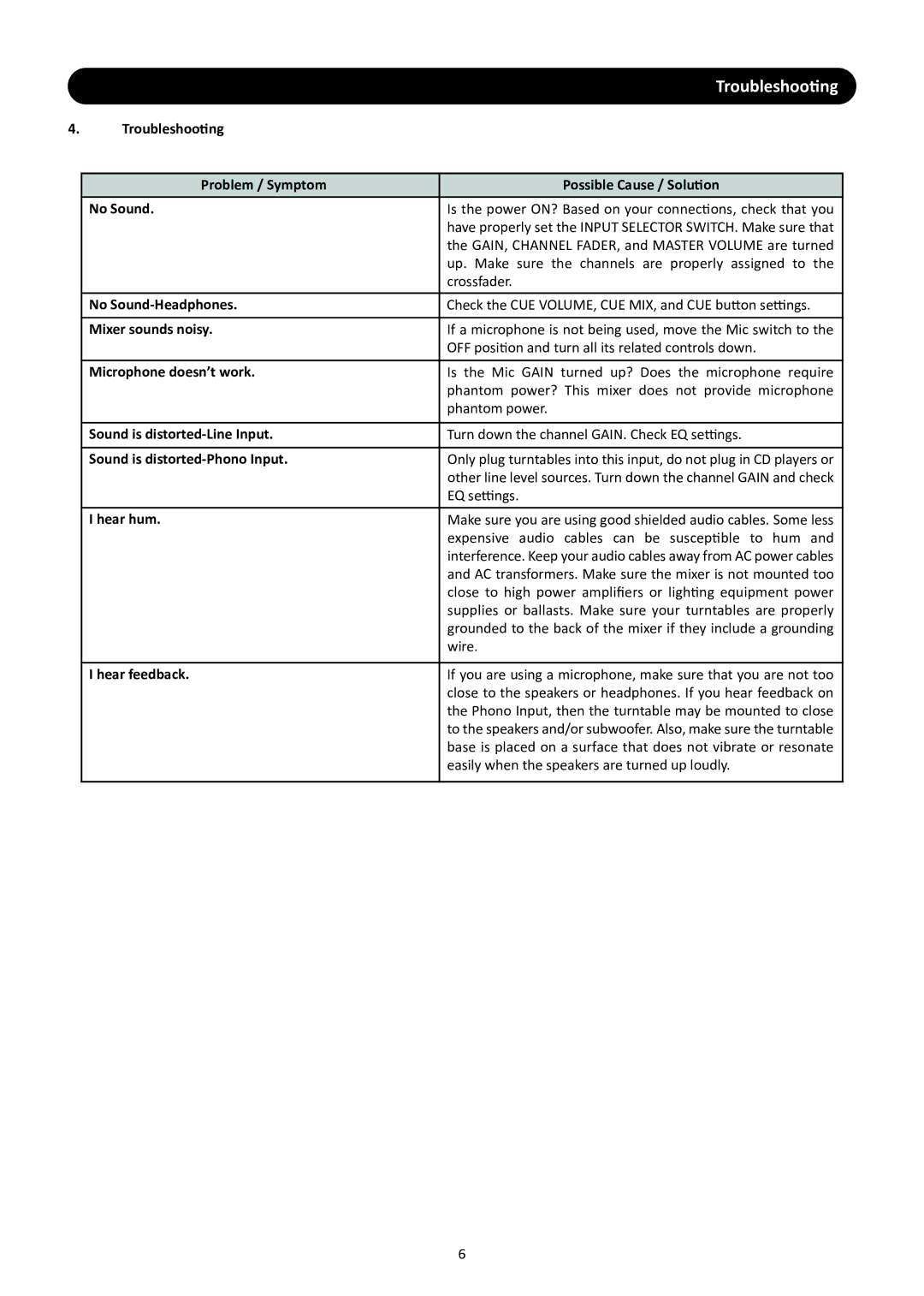RM.416 specifications
The Stanton RM.416 is a robust and versatile loudspeaker system renowned in the professional audio industry for its exceptional sound quality and reliability. Designed for a variety of applications including live sound, installations, and events, the RM.416 integrates cutting-edge technologies that ensure superior performance.One of the primary features of the Stanton RM.416 is its impressive power handling capability. With a peak power of 1600 watts, the speaker can deliver clear, powerful audio, making it suitable for both small and large venues. This capacity allows it to handle dynamic audio signals without distortion, which is crucial in environments where clarity and precision are key.
The RM.416 is equipped with a custom-designed 15-inch woofer that provides deep, resonant bass. This driver is optimized for low-frequency response, ensuring that bass notes are delivered with strength and clarity. In addition to the woofer, the speaker features a high-frequency compression driver that is paired with a precision horn. This design enhances the high-frequency response, resulting in clear, articulate highs that cut through the mix.
Another notable characteristic of the RM.416 is its rugged construction. Built with a durable plywood enclosure, the speaker is designed to withstand the rigors of touring and professional use. Its sturdy design not only protects the internal components but also contributes to the overall acoustic performance of the speaker. The exterior is often coated with a durable finish, enhancing its aesthetic while providing additional protection against wear and tear.
Connectivity is made simple with the RM.416, which is equipped with multiple input options, including XLR and ¼-inch inputs. This versatility allows for easy integration into various audio setups, accommodating different mixers and audio sources. Additionally, the speaker features provisions for daisy chaining, enabling users to connect multiple units together for larger sound setups.
Finally, the RM.416's design incorporates advanced acoustic technologies that enhance sound diffusion and distribution. Its wide dispersion pattern ensures that sound is evenly distributed throughout the space, minimizing dead spots and providing a coherent listening experience for audiences.
In summary, the Stanton RM.416 stands out as a high-performance loudspeaker system that combines powerful sound, robust construction, and user-friendly connectivity. Ideal for both live sound applications and permanent installations, it offers professional audio engineers an reliable solution for demanding environments.
